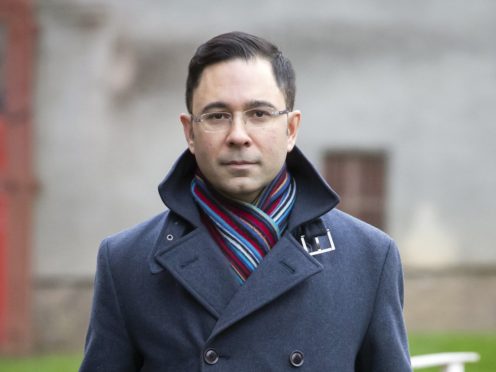A senior BBC executive has been cleared of breaching the law which gives victims of sex offences lifelong anonymity after a reporter named a complainant in a live radio broadcast.
BBC Asian Network head of news Arif Ansari, 44, was found not guilty of breaching the Sexual Offences (Amendment) Act 1992 following a two-day trial at Sheffield Magistrates’ Court.
After the verdict, the BBC said it believed the Corporation should have been charged by the Crown Prosecution Service rather than an individual editor and said it was concerned that the “approach taken by the CPS risks creating a climate of fear for editors seeking to cover the courts in the public interest”.
The trial centred around what District Judge Naomi Redhouse called an “honest mistake” in a broadcast by reporter Rickin Majithia from outside Sheffield Crown Court in February last year.
Mr Majithia told the court that he made the error because he wrongly believed the name the woman had been referred to as in court was a pseudonym.
Mr Ansari said he had no reason to doubt what his reporter had told him, especially as not naming complainants of sex offences was “as basic as it gets”.
The woman who was named in the report sat through the trial and left at the end with a man, believed to be her father, shouting: “You were lucky she wasn’t found dead, mate.”
The district judge said that, on balance, she could not conclude that Mr Ansari had “reasonable suspicion” to believe that the report would breach the victim’s anonymity when he reviewed the script for the broadcast 20 minutes before it was delivered live on air.
But she said: “There may be lessons in this case for the training of court reporters. That’s not going to be a matter for me.”
In a statement issued after the end of the trial on Friday, Mr Majithia said: “I want to repeat my deepest regret for this mistake to the victim and her family.
“I had previously reported on how much they had suffered at the hands of a grooming gang. It pains me to know that this mistake has caused further hurt.”
The reporter explained that it was the victim herself who had invited him to report on the trial “with the sole intention of helping her to tell her story”.
He said he made his mistake “while I was in a state of extreme exhaustion and confusion”.
Mr Majithia said: “I had never covered a criminal trial before and wrongly believed that the victim was being addressed by a pseudonym in court because she was speaking from behind a screen to protect her identity and because she had previously communicated with me by a different name.
“I didn’t know that pseudonyms are not usually used in such trials.
“I had my script checked by my manager, but unfortunately the error wasn’t picked up and the script was approved.
“The mistake happened without malice or intent. Nevertheless, it should not have happened at all.
“I was relieved of my reporting duties within days of the mistake. I have also suffered from significant health difficulties as a result of this incident.
“I am truly sorry for what happened and will remain so for the rest of my life.”
Earlier, as he gave evidence in the trial, Mr Ansari said: “I trusted his journalism. He was a good journalist. This was not a complex legal issue. This is as basic as it gets. This is what journalists are taught at journalism school.”
Mr Ansari, who was BBC North West political editor for seven years, said: “It just struck me as 100% accurate.
“Rickin was a senior journalist, one of my senior reporters. He had a background, professional relationship with the victim in question. I didn’t. I had never met her. I was in London.
“Furthermore, I knew that he knew that he could not name her, use her real name.
“Put all these factors together, it did not occur to me that this could be wrong.”
A BBC spokesman said: “From the start we have accepted that mistakenly naming a victim of sexual abuse during a live broadcast last February was a serious mistake. We apologised directly to the individual concerned and to the court, and we reiterate that again today.
“The CPS had a choice to charge the BBC and or the editor. We firmly believe that it should have been the BBC itself answering in court for this mistake, rather than the individual editor. As we have said previously, we are concerned that the approach taken by the CPS risks creating a climate of fear for editors seeking to cover the courts in the public interest.”
The spokesman said that Mr Ansari and Mr Majithia continued to have the Corporation’s full support.
